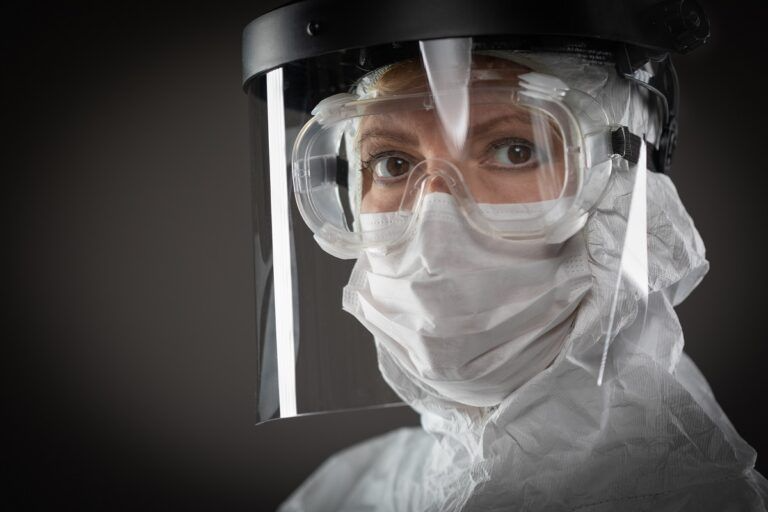Eye Safety Basics and Coronavirus Protection Tips for Frontline Workers
Sub Title

As new data is collected on the coronavirus, it has been discovered in a small percentage of cases that the person ended up becoming infected through their eyes. Some of these people initially had conjunctivitis, which is better known as pink eye.
The virus enters the eye and infects the conjunctiva, which then triggers pink eye. However, it is important to remember that just because someone has pink eye, it does not mean they have COVID-19. Most forms of pink eye are caused by bacteria and other viruses and tend to clear up and go away in a few weeks with treatments prescribed by an ophthalmologist or primary care doctor.
This is just one example of the evolving information about COVID-19. A person could easily be infected through the eyes and not develop pink eye. Some people are asymptomatic and never present any symptoms or have a fever. Yet, they pass the virus around to others.
For frontline workers who are in contact with people daily, protection from coronavirus and protecting their eyes are equally important to reduce the risks of getting sick. Frontline workers should follow all their employers’ safety protocols and guidance from the CDC. In addition, other things frontline workers can do include:
1. Wear a face shield to protect the eyes.
A face shield does not replace a face mask. A face shield is specifically to help shield the eyes from airborne particles. Face shields also can prevent people from rubbing their eyes and touching their faces.
2. Stop wearing contacts.
If you wear contacts, you are touching the lenses and your eyes frequently. It is recommended to discontinue use of the contacts for the time being and wear glasses instead. Glasses can also help protect the eyes from COVID-19, whereas contacts offer no protection and could easily introduce the virus into the eyes.
3. Wear sunglasses and other non-prescription glasses.
If you had laser eye surgery or do not require glasses or contacts, it is a good idea to still wear some type of protection over your eyes. Sunglasses are perfect for the outdoors since they also block the UV rays of the sun. Non-prescription glasses are better-suited for indoor jobs as an alternative to face shields.
4. In “high-risk” areas consider added protection.
If you work with COVID patients, nursing homes, or in other “high-risk” areas, consider increasing your protection levels. For instance, an approved N95 face mask, safety glasses, and face shield would increase protection to the face and eyes. Other special types of face masks are also available that include face-shield-like extensions that could also be worn for added protection.
5. Schedule an eye exam with an ophthalmologist if you notice eye problems.
If you develop pink eye or notice other eye problems like itchy, dry eyes, it is best to consult with an eye care provider as soon as possible. Most eye doctors are offering telehealth visits so they can consult with you safely from the comfort of your home.
If it is determined you need to visit the office, then they will explain what coronavirus protection protocols are in place for their office like temperature checks, mandatory face masks, and so on.
COVID-19 is going to be around for quite some time. As we adjust to the new “normal,” protecting ourselves is important more than ever to avoid getting sick. By taking steps to protect our face and eyes, we can reduce our risks of transmitting and getting the virus.
To arrange a telehealth eye consultation if you are experiencing eye problems or to find out more about different laser vision correction surgeries, please feel free to contact Dougherty Laser Vision at (805) 312-7671 today!
We have office locations in Westlake Village, Camarillo, Beverly Hills, Simi Valley, and Encino.


